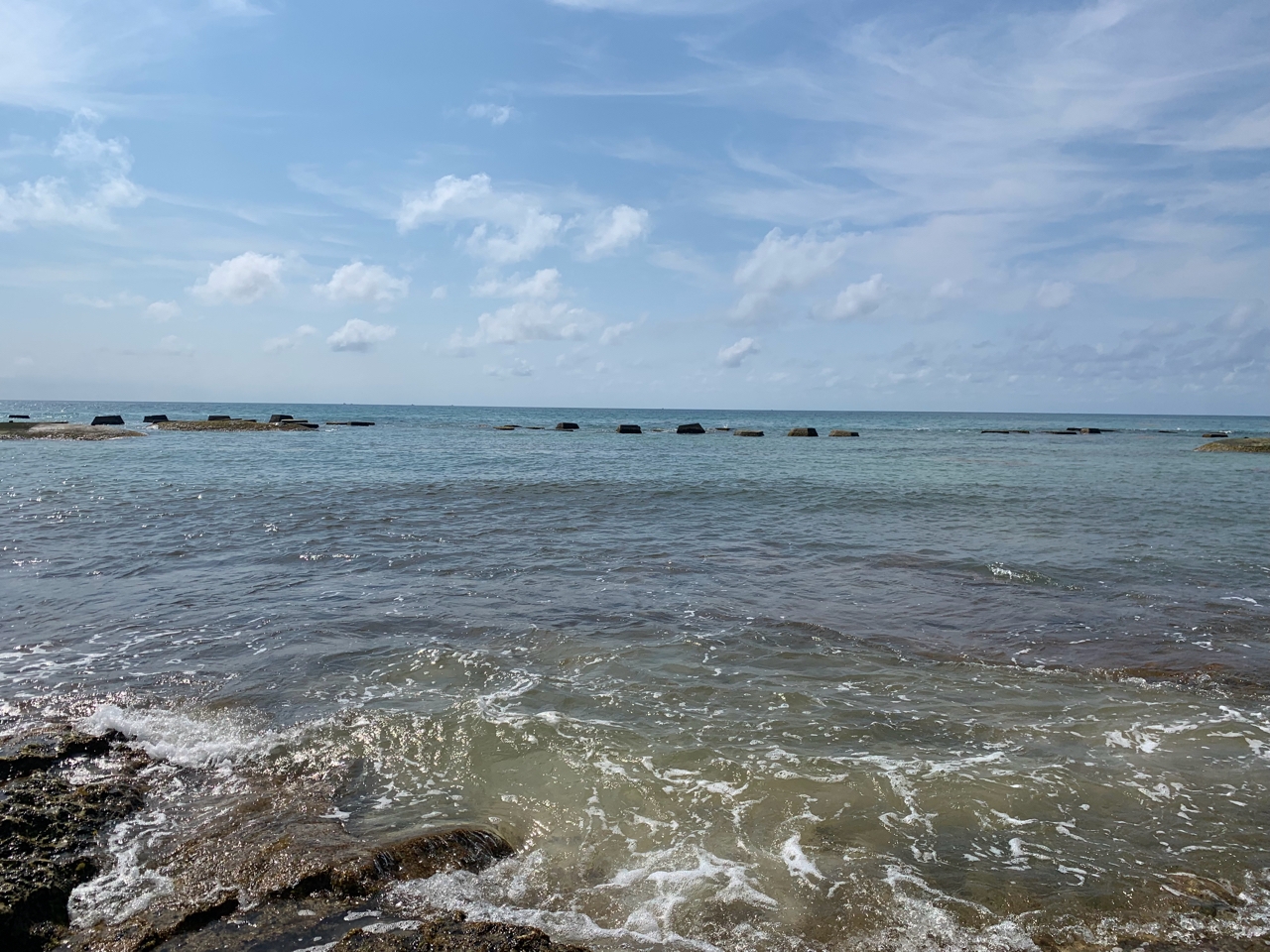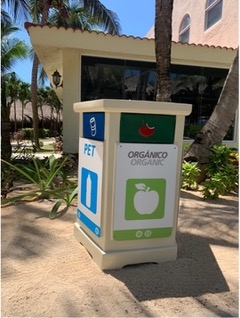Can the tourism industry “come back better”?
July 13, 2021

By Makayla Haertel
As the tourism industry worldwide starts to recover from the pandemic, can it use the opportunity to become more sustainable? And what can we—as hotel guests and review writers—do to encourage this transformation?
Finding a “green” silver lining on a beautiful playa
In late May, being fully vaccinated, my husband and I decided to take our first trip in over a year to Playa del Carmen, Mexico. When working with a travel agent to make sure we were all safe and traveling in accordance with CDC and government guidelines, I honestly wasn’t paying attention to the sustainability standards of our destination. We chose our resort based on the ease of getting a COVID test to be able to return to the States, and—to be completely honest—ratings of their cuisine… which I’m sure many people can relate to. After we had finally chosen one, I found out that the El Dorado Royale by Karisma is a Green Globe-certified resort! This is a rare quality, because the Green Globe governing body is one of the highest standards in the hospitality industry for sustainability worldwide.

Setting international standards
Green Globe certification is awarded to resorts, hotels, conference centers, and attractions that meet rigorous sustainability standards in diverse criteria of sustainable management and socioeconomic, cultural heritage, and environmental aspects. Our resort met these standards in a variety of ways, some of which I got to experience while I was there. For starters, signs all over the resort promote the many sustainability initiatives they are taking to stay compliant with the Global Sustainable Tourism Criteria, local and national regulations, and their Green Globe certification. Alongside their “Passion for Sustainability” program, they publicize ways in which they are pursuing the UN Sustainable Development Goals. This was very exciting to me, as we often focus on the SDGs in the Executive Master of Natural Resources (XMNR) program. Though, I will say, I was disappointed to not see any other visitor reading the signs during our entire stay. The resort was quiet, but I had hoped to run into at least one visitor I could talk to about sustainability!

Reducing waste
As far as setting an example, the resort immediately superseded any other hotel I had ever stayed at by using either glass or recyclable plastic cups in all the restaurants and by not offering any single-use toiletries in the guest rooms. In fact, the cups had “No me tires” or “Don’t throw me away” printed on them, along with the iconic recycling symbol. For inevitable waste, the resort provided many multi-sided receptacles for aluminum recycling, plastic recycling, and organic compost! This made my heart happy, as organic waste in landfills is a large source of methane production via anaerobic decomposition.
Sourcing local produce
In a 70,000 sq. ft. hydroponic greenhouse, resort staff grow several different kinds of vegetables and herbs for use at their numerous restaurants. They advertise a tour of their greenhouse, but unfortunately, we learned when we arrived that multiple hurricanes during the last season had decimated it, and they were in the process of rebuilding. However, we learned that much of the vegetables for the resort’s restaurants were still being grown there on-site. I’m a sucker for grown-on-site produce, so this knowledge made up for not being able to take the greenhouse tour!
Conserving energy
Along with the biodiversity and sustainable agriculture goals, the resort is pursuing impressive energy initiatives. The air conditioners use electrical converters that make the units more efficient in cooling and help reduce power consumption by half! Also, all the water-heating systems are solar powered.
Laundry is a huge expense for hotels and resorts, and this is something I frequently think about when traveling. El Dorado Royale has ozone systems in the laundry room that replace all chemicals. They filter and recycle the water used, converting 92 percent of it into drinkable water. On top of that, they recover up to 98 percent of the heat produced in washing cycles to be used later. This is a genius idea on the part of the resort. Even more energy can be saved if visitors decide for themselves to leave the “Do Not Disturb” on their door, so their sheets are not washed and changed after having been slept in only once or twice. I think many hotels have started considering changing linens less frequently since COVID to prevent spread, and I hope they stick with it as a sustainability initiative as well.
Making responsible consumer choices
There is a large divide in the sustainable development community about traveling. Some argue traveling has too huge a global footprint, in that getting anywhere generates extensive carbon emissions, whether by car, plane, or coal-powered train. I understand this side of the story; however, I disagree. If we make tourism sustainable—that is, if people choose to travel and stay and play in places that are doing good things for the environment—then travel can have amazing benefits through experiences and seeds of ideas planted in the visitors’ heads.

I doubt that many people visiting our resort were as excited as I was to find that they are Green Globe-certified. But there is no way they missed all the signs of the recycling symbol, the Passion for Sustainability program, the artificial reef—the sustainable philosophy was everywhere. If the only thing it does is to make people think twice next time they throw something away that could be recycled at home, or to remember next time they visit a hotel how much more efficient it seemed to use a large refillable shampoo bottle than a teeny tiny single use one, then that is a win in my book. They might not have otherwise had those thoughts had they not had this experience at this place. Travel also allows you to develop empathy for people in different parts of the world—sea-level rise may not be affecting your city in West Virginia, but after visiting the coast of Mexico, you can already see how it’s greatly affecting those communities.
Overall, after my first stay at a Green Globe-certified resort, I was encouraged by the property’s sustainability initiatives, from the outside looking in. I would have liked to have learned more information about how they are pursuing UN Sustainable Development goals. Alas, this was also my honeymoon and I wanted to enjoy the palm trees and salty air while I had it.

Makayla Haertel is a student in the Executive Master of Natural Resources (XMNR) program. She graduated with a B.S. in Conservation Biology and a minor in Marine Science from the State University of New York College of Environmental Science and Forestry. After working on various wildlife conservation projects, she saw firsthand the effects of climate change on the natural resources, wildlife, and people in different communities. She aims to further her understanding and leadership in sustainability on a global scale to help organizations make more sustainable choices. Makayla is especially interested in using sustainable travel practices to enhance local communities’ ability to adapt to our changing climate and continue to prosper.


